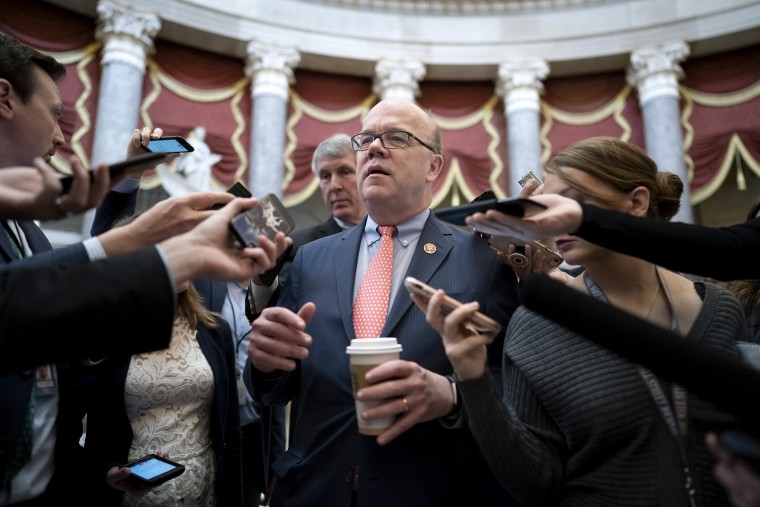House Democrats are studying remote voting as a way to pass legislation as the nation grapples with the coronavirus outbreak and two members of Congress test positive for infection.
Rep. Jim McGovern, D-Mass., the chair of the House Rules Committee, told House Democrats on a conference call Thursday that he is conducting a study on remote voting and whether it's feasible, according to an aide familiar with the call.
House Majority Leader Hoyer, D-Md., said on the call that they're "looking into" the best way to ensure the continuation of Congress while reducing the risk of transmission as much as possible. Hoyer also said it would be easier for Congress and the Trump administration to pass phase three of the aid package aimed at combating the economic loss caused by the coronavirus.
The possibility of remote voting in Congress is the latest illustration of the way the coronavirus is reshaping daily American life and work, where citizens are urged to isolate and distance themselves from others to blunt the infection rate.
In Congress, Reps. Mario Diaz-Balart, R-Fla., and Ben McAdams, D-Utah, announced on Wednesday that they tested positive for the virus — making them the first two members to announce they have the virus. Two Capitol Hill staffers have also tested positive.
The Senate is also considering remote voting as it works to pass bills to fight the outbreak. Sen. Dick Durbin, D-Ill., and Sen. Rob Portman, R-Ohio, introduced a resolution Thursday to change the chamber's rules to allow for remote voting during a national public health crisis.
Supporters of the move said it would help reduce the spread of infections to other members and their families. Critics of the move have said it goes against tradition and raised constitutional issues.
Sen. Roy Blunt, R-Mo., told NBC News Thursday "it’s not going to happen," citing the reluctance of House Speaker Nancy Pelosi, whose San Francisco district has been hit hard by the virus, and Senate Majority Leader Mitch McConnell, R-Ky., to move on the idea.
"We will deal with the social distancing issue without fundamentally changing the Senate rules," McConnell told reporters on Tuesday.
Pelosi said earlier this month, "You have to be here to vote."


